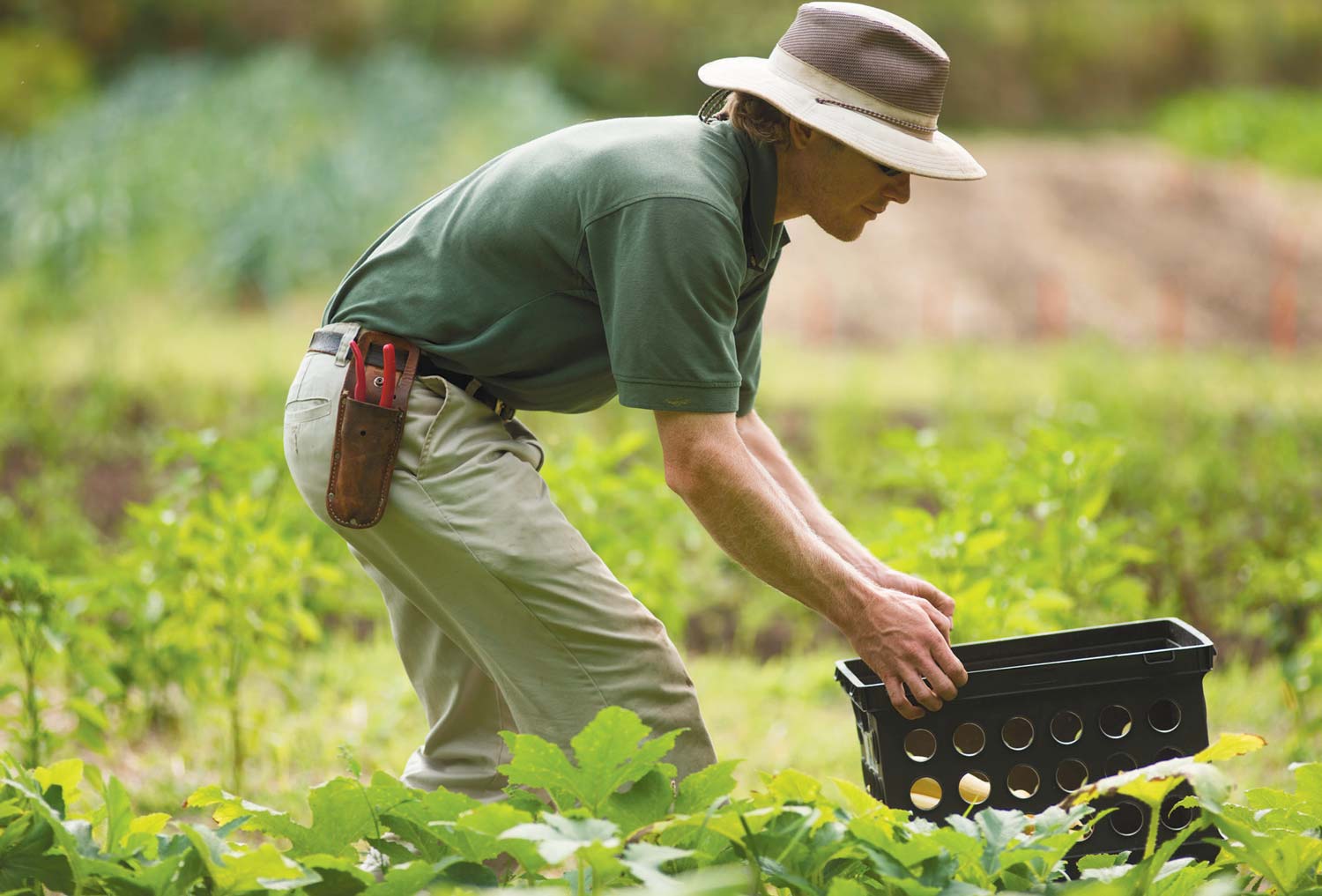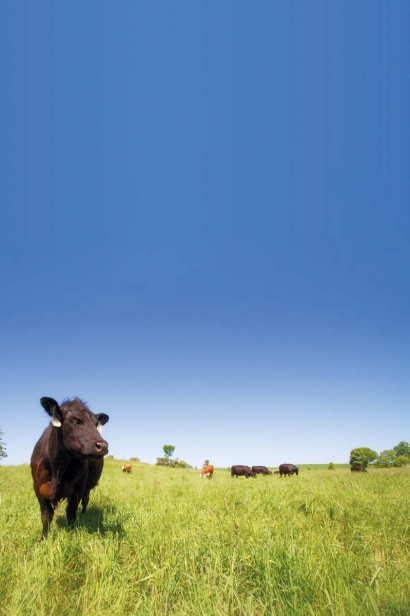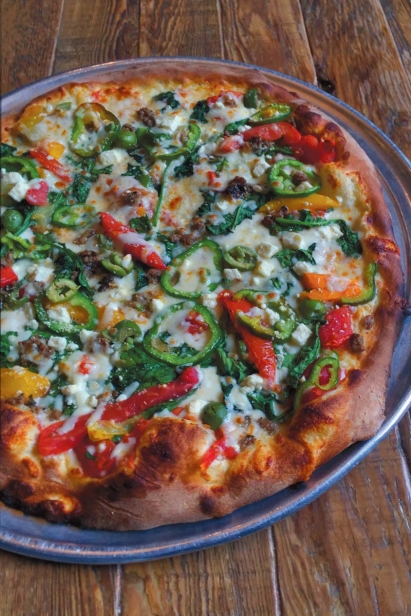Exploring The Positive Impact Of Local Food Networks
GAP-Good Agricultural Practices • GHP-Good Handling Practices • LFPP-Local Food Promotion Program SNAP-Supplemental Nutrition Assistance Program. Oh, the webs we weave!
You may or may not know these acronyms, but walk into your favorite farmers market or local food store and you can bet your biscuit the farmers and proprietors know about them.
While the Wisconsin Department of Agriculture reports that agriculture is a big economic driver contributing $88.3 billion annually to the state’s economy, the health of a local food economy depends upon a host of hands beyond the field. At the core of it all are the relationships and the way we nurture them that makes the difference.
Take Fred Depies of Trust Local Foods in Appleton. He and his late wife, Kathleen, set out to develop a regional food guide known as “Farm Fresh Atlas of Eastern Wisconsin.”
Their efforts evolved into a local food distribution business in 2010, where the goal was to “provide locally and organically produced foods from trusted sources to nourish Northeastern Wisconsin's communities.”
As time progressed, Depies says, “We organically watched what our customer was doing. It was a growth of certain businesses that determined our efforts.” Today, Trust Local Foods distributes local farm and artisan products like Clover Meadows Family Farm and LaClare Farms to health food stores and coffee shops such as The Free Market and Paradigm Coffee.
Depies keeps the farm connection alive with consumers by “digging in and getting the story,” but he says, “We couldn’t do this without the conscientious people.”
Another conscientious company sourcing from folks like LaClare Farms is The Osthoff Resort. Located northeast of Fond du Lac, this premier Wisconsin resort served nearly 200,000 guests last year. About eight years ago, the resort’s general manager Lola Roeh says that she was reading about how GMO foods aren’t digested the same as natural foods.
“Because of our commitment to the guest experience, we started raising some of our own food. We could understand and control that.”
What started out as a small kitchen garden expanded several times, and now its two-acre garden yields thousands of pounds of produce for the resort’s award-winning restaurant, Lola’s On The Lake. Understanding how much and what types of food the chefs can use determines what grounds manager Mark Roehrig raises. By keeping close records, he’s able to predict harvest schedules so that the chefs can plan their seasonal menus. But at the end of the day, “If the chefs want it, we’re going to try and grow it,” Roehrig explains.
Back in Appleton, the general manager of Cafe Bon Appetit at Lawrence University, Julie Severance, found herself wandering through the Downtown Appleton Farm Market some time ago and introducing herself to the farmers.
“We would use all that they could give us,” she remembers. It’s where she met Maria Davis and Chris Holman of Nami Moon Farms. These days, Nami Moon Farms produces more than 300 pounds of tomatoes for the school’s local tomato fest that happens every September.
The Compass Group-owned cafe is committed to spend 20 cents out of every dollar for local food sourcing.
“It’s a true advantage to build relations with family-owned businesses and know where your food is coming from,” Severance explains. The bulk of tomatoes that the Cafe uses to feed the 1,300-plus university students comes from a student-run garden right across the street called, SLUG (Sustainable Lawrence University Gardens).
Just as The Osthoff garden crew consults with their chef team, so does Severance. SLUG is home to a five-hive honeybee apiary, perennial fruit tree orchard and a quarter-acre annual garden with a 90-foot hoop house. Especially when school isn’t in session, experienced “SLUGgers” are eager to train folks interested in sustainable food systems. But, think again if your plan is to get rich quick by farming. Davis of Nami Moon says, “It takes about a decade from scratch to live off your farm.”
Waseda Farms president Matt Lutsey can relate. His family began farming in 2008. Today, it manages 1,000 acres of USDA certified-organic beef, pork and poultry.
“We’ve grown as fast as we can,” Lutsey explains, keeping in mind that from conception to harvest it can take upwards of three years to produce meat (depending on species) in a sustainable way.
Still, he suggests that “the American consumer doesn’t consume animals the way God intended.” A combination of restaurants, markets and institutions is key to sustain a viable farm business. Today, more than 30 area restaurants source Waseda Farms products.
Lutsey clarifies, “We’re particular about where we put our meat. It’s important to choose reliable chefs who know what they’re doing.” He says having a larger wholesale market is key to keep product moving.
Wild Tomato Pizza has been doing business with the Waseda Farms family for quite some time, and clearly know what they’re doing. This family-friendly pizzeria’s co-owner Britton Unkefer says that “the beauty of pizza is that it’s affordable.”
As a matter of fact, a family of four can eat very well for under $50 at either of their Door County locations. Whether it’s sourcing for a Family Farms Pizza or a side of the day, Unkefer is proud to work with 6-8 local farms, including Waseda, on an ongoing basis and throughout the Wild Tomato Pizza menu. He considers the term “local” to be a three-tiered approach: Door County, Northeastern Wisconsin and the entire state.
Each year, Unkefer audits his local budget with a goal of at least 40 percent of his food costs reaching the three tiers. Starting in winter, he consults with identified local farms to fulfill his allotted budget. Specialty crops like Cipollini onions and Carmen peppers are definitely included in the discussion, but gleaning is priority.
“I want to make sure I’m helping them as much as I can by utilizing the entire harvest,” Unkefer continues. “We work with all sizes of growers, and all sizes of product.”
Of course, you can’t talk pizza without considering the cheese. Thousands of pounds per year come through the Wild Tomato doors, 6,000 to 7,000 pounds of BelGioioso Cheese alone. Unkefer takes pride in driving through his community and seeing the growers of the milk used to make BelGioioso cheese. He adds that it feels good to know his choice to invest in the local food economy is directly affecting his neighbors’ bottom line in a positive way.
Ever played six degrees of separation?
Waseda Farms could easily be considered the Kevin Bacon of Eastern Wisconsin’s local meat production. A few years back, when “pink slime” ground beef made national headlines, the Gibraltar School District’s school nutrition specialist Carla Marr expressed her concerns to Unkefer.
He suggested that she reach out to Lutsey to see if there were opportunities to extend the local food web to her students.
“I had the full support of my former superintendent, Dr. Stephan Seyfer, and the Gibraltar Board of Education,” remembers Marr. During the presentation, Marr had the cost breakdowns and reasons why the school district should switch to a grass-fed, locally-pastured product. Cutting down on their carbon footprint was also a huge factor.
Today, Waseda Farms delivers monthly organic, grass-fed beef orders to the school. Spring is a particularly special time. When Waseda's chickens are laying lots of eggs and the tourist season isn't in full swing, Marr happily uses the surplus.
“Our elementary kids go crazy over Waseda's organic eggs! I'm not sure if it's because they are already dyed by nature, or if it's the flavor. We think it's both,” Marr smiles.
It has been said, “You are what you eat.” It is the intricate webs like these that we weave that will sustain us for years to come.
Grilling season is right around the corner and this recipe from Waseda Farms is a great way to kick it off right!
…but remember, “You can’t uncook a steak.”







